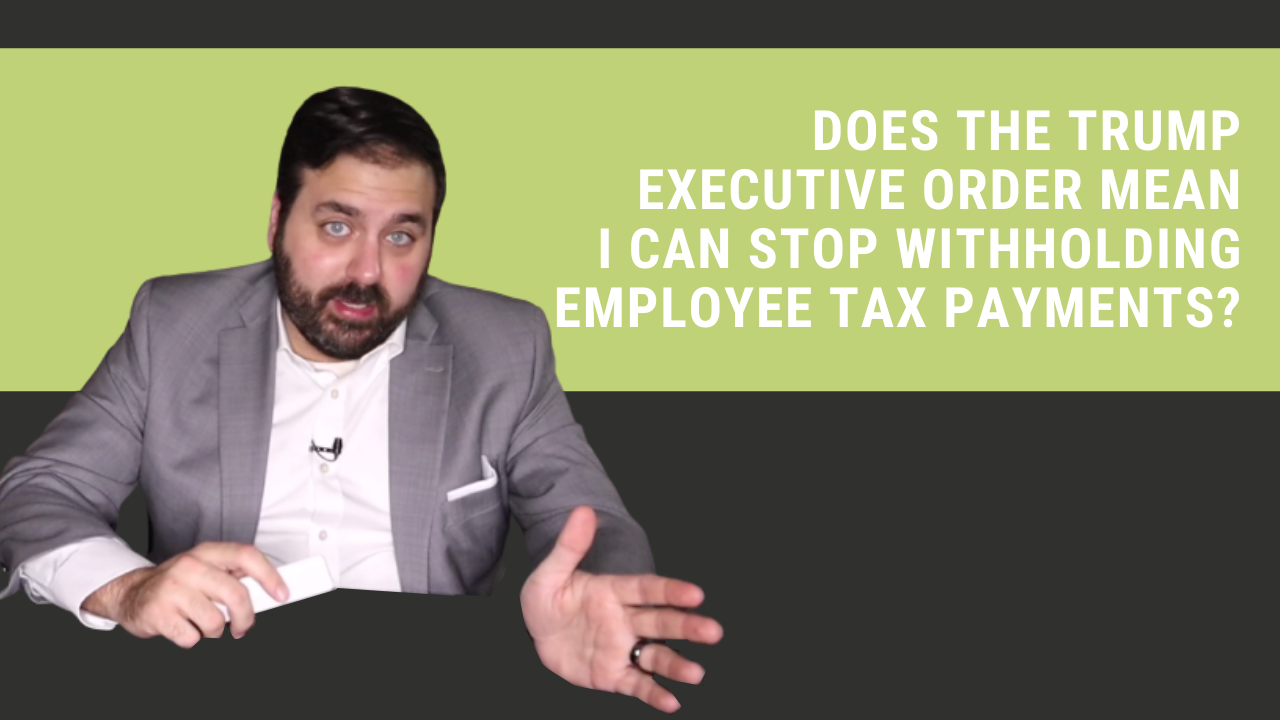Today’s episode explains President Trump’s recent executive order to extend pandemic unemployment benefits, student loan payment deferrals, eviction protections, and payroll tax cuts in the wake of COVID-19.
One of the new benefits allows for $400 per week into December, compared to the previous unemployment insurance of $600. President Trump explained that states will be covering 25% or $100 per week per individual.
Another of the memorandums issued addresses student loan payment deferrals. Payments on federal loans were suspended through September, and Trump’s memorandum seeks to extend payments through the end of 2020. Lastly, Trump issued a memorandum deferring payroll tax obligations through 2020, advising the Treasury Department to allow employers to defer payments for the employee portions of specific payroll taxes. Generally, federal funding is controlled by Congress, leading to potential challenges for these executive actions.
With regard to the payroll tax deferral, the Secretary of the Treasury is directed to use his authority to defer the withholding, deposit, and payment of the 6.2 percent Social Security tax on certain wages or compensation paid between September 1, 2020, and December 31, 2020. This withholding deferral only applies to employees with wages or compensation payable during a bi-weekly pay period that generally is less than $4,000, calculated on a pre-tax basis. The amounts deferred are to be without penalties, interest, or additions to the tax.
Given that a comprehensive stimulus bill may be passed that will obviate the need for the Executive Order, the anticipated Treasury guidance, and the September 1 effective date, we do not recommend that employers take immediate action to implement the deferral, although they will need to review any implementing guidance issued by the Secretary of the Treasury and to evaluate the risks in implementing the deferral of the employee portion of the Social Security tax, which ultimately may need to be withheld from future employee wages or compensation.
If you have questions or need assistance, please reach out to the People Processes Team with whom you regularly work. We will continue to review all relevant guidance and legislation and will provide updates as appropriate.








0 Responses
Thanks, Lora Manners for peopleprocesses.com